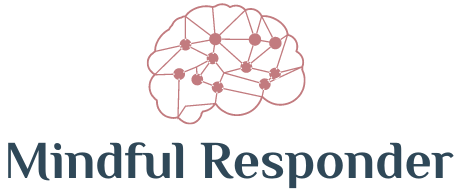Nobody knows for sure rates of substance abuse among American first responders. Psychologist Ellen Kirschman and epidemiologist John Violanti–two of my heroes–have been looking at this for decades now. According to Kirschman, law enforcement officers experience substance abuse disorders at about double the rate of the general population. I’ve seen prominent psychologists claim that about 50% of firefighters experience alcohol use disorder. A survey of correctional workers found that 66% report definitely having a colleague addicted to alcohol.
We also know that stress tends to contribute to alcohol abuse. For example, McCanlies et al. (2014) found that police officers who responded after Hurricane Katrina increased alcohol consumption considerably. Anka Vujanovic and her colleagues have done several studies on first responders and stress and alcohol. COVID stress was correlated with increased drinking among them, they found.
This We Know
But on some level, if you’re reading this, you probably know this already. First responders, as whole, enjoy a drink, and also maybe a little too much sometimes. The cultures of first response have highly ritualized alcohol rites. These can be fun and healthy. Less celebrated is the dark side to this. Some first responders find themselves sunk in the pits of deep dependence and addiction. And while alcohol is the main culprit, opioids, marijuana, and prescription pills, among other substances, afflict American first responders too.
The fact is, we’re in the midst of a substance abuse epidemic in this country. Roughly since COVID began, or between 2019 and 2020, alcohol deaths have jumped 25.5%. This is the largest increase ever recorded, by a lot. Synthetic opioid deaths shot up over this period by 60%. First responders are certainly counted among these numbers.
What does this have to do with mindfulness? Not a little, I think. Mindfulness is about feeling at home in your own being and body. Zazen, the Zen practice of “just sitting,” is just that. You sit. You get comfortable with your discomforts and you let yourself be, in peace. You notice things. There are reasons mindfulness and meditation are routine aspects of substance abuse recovery programs.
Alcohol and drug abuse, conversely, are about escape. You take that dose to get away from the experience of mind and body. The more you take, the more you need to take to get that quick escape. I’ve seen my share of alcohol abuse in my work with first responders. I’ve heard second-hand of far more, and far worse.
Room for Improvement
In so far as drugs and alcohol are addressed by public safety agencies, these–those that I have seen–tend to be fairly perfunctory, in-service warnings to the individual. There are policies and there’s hopefully EAP and peer support and maybe a few slides in presentation decks. But the assumption tends to be that substance abuse is a rare problem afflicting a few individuals; it’s on them to get better. While there’s merit in acknowledging the potential pitfalls for the individual, this is, again, a culture phenomenon. John Violanti suggests taking the onus of diagnosis off the individual first responder. In other words, create a culture of wellness and caring and fitness.
There are agencies doing just that. DIrector Vernon Herron always comes to mind. This man is just doing so much so right, and Baltimore City Police are lucky to have him heading up Officer Safety and Wellness. Herron’s officers are supported from Commissioner Michael S. Harrison to the cop on the beat. Officers in turn look out for one another. Director Herron’s honesty is refreshingly blunt. San Francisco fire and police also do a really good job. In fact, there are many who do. But then there are more than 60,000 police, EMS, and fire departments in the U.S.
If you or someone you love might have a substance abuse problem there are resources. Tell someone you trust about your perceptions and struggles, and be honest. EAPs and peer support are often good starts. If you’re concerned about the rumor mill, you can also look outside of your agency. The Substance Abuse and Mental Health Services Administration is a tremendous resource. Call 1-800-662-HELP (4357) for a referral or text 435748.
It’s not uncommon for a first responder to say they have a couple of drinks a night. No problem, right? They leave out the part that those drinks are served … in a thermos … in the garage … alone. As my friend Sgt. Brian Casey says, “No-risk drinking is zero beers a week.”
The Mindfulness Connection
One of the great things about mindfulness and meditation is that you’ll come to see yourself and the world you’re a part of a little more clearly with some practice. Some people come to see substances as impediments to clarity and spiritual wholeness. For those who have decided to cut back or abstain, meditation and prayer can provide a solid foundation for life. For first responders, who often deal in stress and who experience trauma, the escape promised by substances is short-lived. If you enjoy a drink once in a while, may you truly enjoy it! And if it feels like it might be time to cut back or cut it out altogether, know that that’s just fine too.
Lead the way, whether you take it or leave it, and be mindful.

